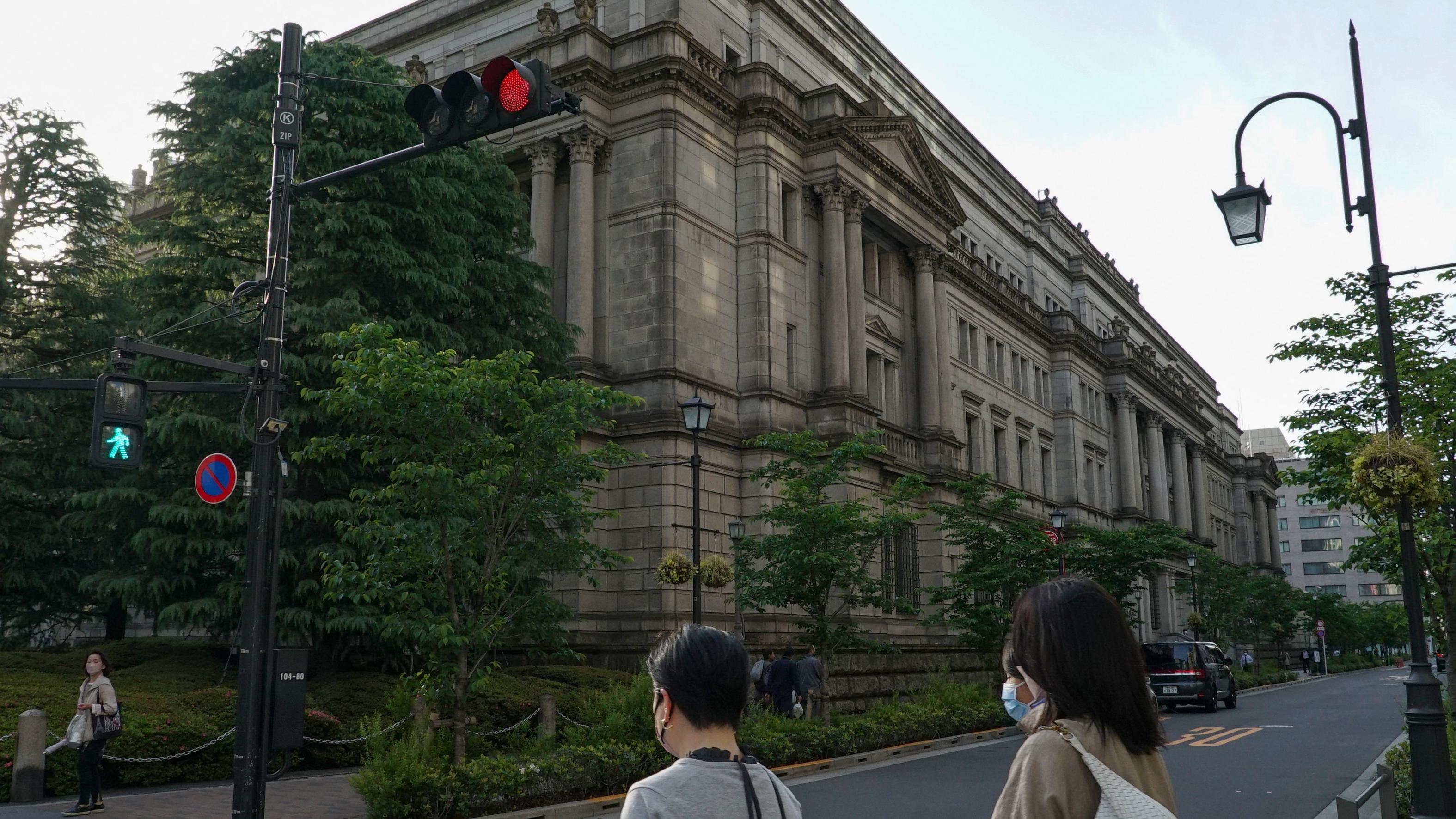 People walk past the Bank of Japan (BOJ) headquarters in Tokyo on April 28, 2023. (PHOTO / AFP)
People walk past the Bank of Japan (BOJ) headquarters in Tokyo on April 28, 2023. (PHOTO / AFP)
TOKYO — Japan's core consumer prices rose 3.1 percent in 2023 from the previous year, marking the fastest growth in 41 years, the government said in a report on Friday.
The core consumer price index (CPI) for the year, excluding fresh food prices because of their volatility, came in at 105.2 against the 2020 base of 100, with its pace of increase fastening from 2.3 percent in 2022, according to the Ministry of Internal Affairs and Communications.
In December alone, the core CPI saw a 2.3 percent increase from the previous month, slowed from 2.5 percent in November but remained above the Bank of Japan's 2 percent inflation target for the 21st consecutive month
The yearly increase, which remained above the Bank of Japan's 2 percent inflation target for the second consecutive year, marked the highest level since 1983.
READ MORE: Japanese inflation picks up as Bank of Japan pivot bets grow
It came despite government subsidies to lower household utility bills, underscoring higher import costs that were inflated by a sharp drop of the yen, a byproduct of the Bank of Japan's monetary easing, national news agency Kyodo reported on Friday.
Food prices saw the sharpest hike in 48 years by rising 8.2 percent in 2023.
In December alone, the core CPI saw a 2.3 percent increase from the previous month, slowed from 2.5 percent in November but remained above the Bank of Japan's 2 percent inflation target for the 21st consecutive month.
The core-core CPI, which strips away both energy and food prices, rose 3.7 percent, underscoring persistent inflationary pressures, the data showed.
In a breakdown of items lifting the core CPI last month, food costs witnessed a 6.2 percent increase, while accommodation costs increased 59 percent as the tourism industry revived.
READ MORE:Japan's business mood hits near 2-year high, BOJ exit in focus
Due to government subsidies to reduce fuel costs, energy prices dropped 11.6 percent.


